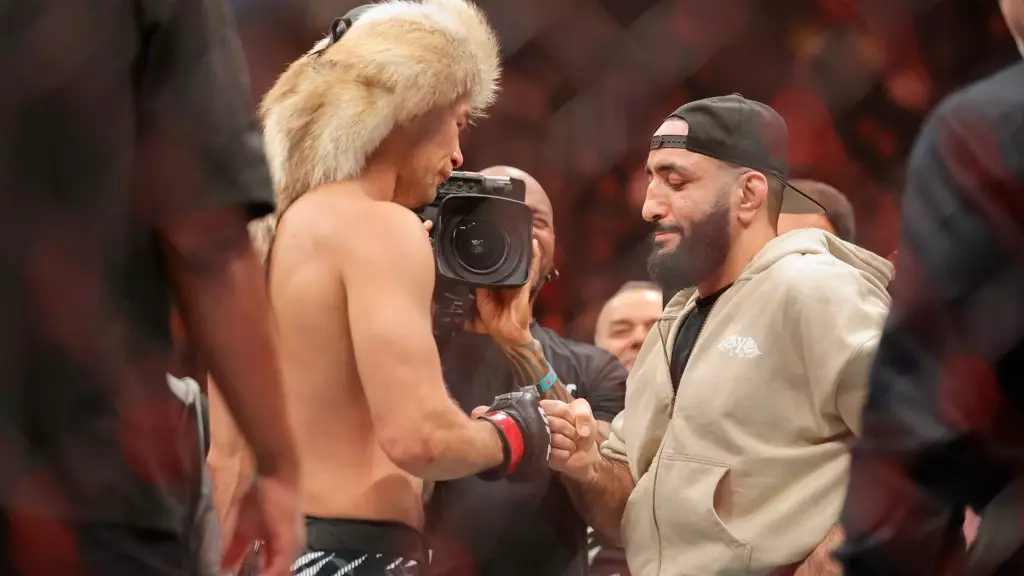At UFC 310, the post-fight faceoff between welterweight champion Belal Muhammad and contender Shavkat Rakhmonov raised eyebrows, particularly drawing criticism from MMA veteran Daniel Cormier. This exchange occurred after Rakhmonov secured a victory over Ian Machado Garry, marking him as a noteworthy contender in the division. The moment, intended to promote a potential championship clash, fell flat according to Cormier, highlighting the diverse factors that contribute to the effectiveness of promotional events in sports.
One of Cormier’s primary concerns was the language barrier separating Muhammad and Rakhmonov. The absence of fluid communication dilutes the emotional impact and intensity typically associated with fighter faceoffs. Cormier remarked on how this disconnection diminished the promotional potential of the encounter, suggesting that the inability to engage in direct dialogue left a void. Unlike memorable moments in the sport that are fueled by dynamic exchanges—exemplified by heavyweight confrontations where competitors articulate their rivalry—this particular faceoff lacked the spark that builds anticipation for an upcoming bout.
Furthermore, the logistical aspects of the event compounded the awkwardness. Muhammad faced initial resistance from security personnel, which not only interrupted the flow of the moment but also underscored an apparent disorganization. Joe Rogan’s joking reference concerning Muhammad’s champion status further muddled the seriousness of the occasion, drawing laughter when perhaps somber respect was warranted. When champions and challengers meet in the cage, the narrative is often more poignant when it is treated with the reverence it deserves.
Cormier pointed towards previous moments in UFC history where faceoffs significantly elevated the stakes of subsequent matches. He contrasted the UFC 310 faceoff with the respectful exchanges seen in past events, such as Alexander Volkanovski’s encounter following Ilia Topuria’s victory over Max Holloway. The seamless handshake and congeniality at that moment created an iconic image that resonated with fans and media alike. In that context, the UFC 310 faceoff seemed to not merely underperform but miss a critical opportunity for emotional engagement and narrative-building.
Ultimately, Cormier’s critique serves as a reminder of the complexities involved in promoting mixed martial arts. Moments in the cage should encapsulate the passion and rivalry expected from elite athletes. They are not merely a box to tick in the promotional playbook; they require careful consideration of both content and context. As UFC continues to grow and evolve, ensuring that these exchanges resonate meaningfully with audiences will be crucial in setting the stage for future matchups. The lesson from UFC 310 is clear: the promotion of a fight extends beyond the octagon and requires seamless execution, respectful interactions, and, importantly, connection.

